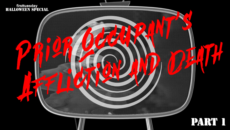Conflict of interest disclosure: manage your ongoing agency conflicts
This article discusses a broker’s use of a Conflict of Interest Disclosure to avoid breaching the fiduciary duty he owes to his client when he has a bias relating to the opposing party in a transaction, or another, whose interests are in conflict with his client’s.
Professional relationships compromised
A conflict of interest arises when a broker or his agent, acting on behalf of a client, has a competing professional or personal bias which hinders his ability to unreservedly fulfill the fiduciary duties he has undertaken to advise and act on behalf of the client.
In a professional relationship, a broker’s financial objective of compensation for services rendered by the broker is not a conflict of interest. However, fees and benefits derived from professional courtesies, familial favors, and preferential treatment by others toward the broker or his agents is compensation which must be disclosed to the client. [See first tuesday Form 119]
Further, the referral of a client to a financially controlled business owned or co-owned by the broker, disclosed by use of an affiliated business arrangement (ABA) form, is also not classified as a conflict of interest. [See first tuesday Form 519]
A conflict of interest addresses the broker’s personal situations potentially at odds with the agency duty of care and protection owed the client.
Thus, a conflict of interest creates a fundamental agency dilemma for brokers, not a compensation or business referral issue. A conflict of interest exists when:
- a broker has a positive or negative bias toward the opposing party in a transaction or a person not directly involved in the client’s transaction; and
- that bias in favor of or against the other person might compromise the broker’s ability to freely recommend action or provide guidance to the buyer or seller, landlord or tenant, or lender or broker he agreed to represent.
This bias regarding an opposing person or a party not directly involved, to whom the broker may or may not also owe an agency duty, must be disclosed if the bias might disrupt the broker’s ability to make impartial decisions about the care and protection he owes his client. Unless disclosed and the client consents, the conflict is a breach of the broker’s fiduciary duty of good faith, fair dealing, and trust owed to his client should the broker continue to act on the client’s behalf. [See first tuesday Form 527]
Situations involving a conflict
A conflict of interest, whether patent or potential, is disclosed by the broker at the time or as soon as possible after the conflict arises. Typically, conditions which bring about the conflict arise prior to providing a buyer with property information or taking a listing from a seller.
The disclosure creates transparency in the transaction, revealing to the client the bias held by the broker which, when disclosed, allows the client to take the bias into consideration in negotiations. Though the disclosure and consent does not neutralize the inherent bias itself, it does neutralize the element of deceit which would breach the broker’s fiduciary duty if left undisclosed.
Potential overlaps of allegiance or prejudice which cause a conflict that a broker or his agent must disclose include:
- the broker or his agent holds a direct or indirect ownership interest in the real estate, or are directly or indirectly a buyer of the property in the transaction, including a partial ownership interest in a limited liability company (LLC) or other entity which owns or is buying, leasing, or lending on the property;
- an individual related to the broker or one of his agents by blood or marriage holds a direct or indirect ownership interest in the property or is the buyer;
- an individual with whom the broker or a family member has a special pre-existing relationship, such as prior employment, significant past or present business dealings, or deep-rooted social ties, holds a direct or indirect ownership, leasehold, or security interest in the property or is the buyer;
- the broker’s or his agent’s concurrent representation of the opposing party, a dual agency situation; or
- the unwillingness of the broker or his agent to work with the opposing party, or others, or their brokers or agents in a transaction.
Simply, a conflict of interest should be disclosed to the client by the broker when he has a pre-existing relationship with a person other than the client based on any form of kinship, employment, partnership, common membership, religious affiliation, civic ties, or any other socio-economic context which might hinder his ability to fully represent the needs of his client.
This disclosure is serious business. The client’s tardy discovery of the conflict and their complaint to the Department of Real Estate (DRE) for failure to make the disclosure and obtain consent before continuing to advise or act on behalf of the client can result in the suspension or revocation of the broker’s license by the DRE. [Calif. Business and Professions Code §10177(o)]
Generally, if a broker even questions whether it is appropriate to disclose a potential conflict of interest to a client, he should disclose it. The existence of any concern is reason enough for a prudent broker to be prompt in seeking his client’s consent to the potential conflict. By timely disclosing a conflict of interest and obtaining consent, the broker immediately creates an honest working relationship with his client.




















